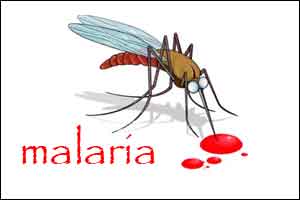- Home
- Editorial
- News
- Practice Guidelines
- Anesthesiology Guidelines
- Cancer Guidelines
- Cardiac Sciences Guidelines
- Critical Care Guidelines
- Dentistry Guidelines
- Dermatology Guidelines
- Diabetes and Endo Guidelines
- Diagnostics Guidelines
- ENT Guidelines
- Featured Practice Guidelines
- Gastroenterology Guidelines
- Geriatrics Guidelines
- Medicine Guidelines
- Nephrology Guidelines
- Neurosciences Guidelines
- Obs and Gynae Guidelines
- Ophthalmology Guidelines
- Orthopaedics Guidelines
- Paediatrics Guidelines
- Psychiatry Guidelines
- Pulmonology Guidelines
- Radiology Guidelines
- Surgery Guidelines
- Urology Guidelines
Ivermectin effective in controlling malaria transmission : Lancet

Ivermectin 300 μg/kg per day for 3 days provided a good balance between efficacy and tolerability and can prove to be a promising drug for malaria elimination, according to a study recently published in the journal THE LANCET Infectious Disease.
Menno R Smit and his associates conducted a study to establish the safety, tolerability, and mosquitocidal efficacy of 3-day courses of high-dose ivermectin, co-administered with a standard malaria treatment.ivermectin is well tolerated up to 2000 μg/kg.
Ivermectin is being considered for mass drug administration for malaria due to its ability to kill mosquitoes feeding on recently treated individuals. However, standard, single doses of 150–200 μg/kg used for onchocerciasis and lymphatic filariasis have a short-lived mosquitocidal effect (<7 days).
The study was a randomized, double-blind, placebo-controlled, superiority trial which included 741 adults (aged 18–50 years) suffering from symptomatic uncomplicated Plasmodium falciparum malaria. Participants were randomly assigned (1:1:1) using sealed envelopes, stratified by sex and body-mass index (men: <21 vs ≥21 kg/m2; women: <23 vs ≥23 kg/m2), with permuted blocks of three, to receive 3 days of ivermectin 300 μg/kg per day, ivermectin 600 μg/kg per day, or placebo, all co-administered with 3 days of dihydroartemisinin-piperaquine. Blood of patients taken on post-treatment days 0, 2 + 4 h, 7, 10, 14, 21, and 28 was checked. Anopheles gambiae sensu stricto mosquitoes and mosquito survival were assessed daily for 28 days after feeding. The primary outcome was 14-day cumulative mortality of mosquitoes fed 7 days after ivermectin treatment (from participants who received at least one dose of study medication).
Out of 741 adults with malaria, 141 were randomly assigned to receive ivermectin 600 μg/kg per day (n=47), ivermectin 300 μg/kg per day (n=48), or placebo (n=46). 128 patients (91%) attended the primary outcome visit 7 days post-treatment.
The study found that compared with placebo, ivermectin was associated with higher 14-day post-feeding mosquito mortality when fed on blood was taken 7 days post-treatment(ivermectin 600 μg/kg per day; ivermectin 300 μg/kg per day). Mosquito mortality remained significantly increased 28 days post-treatment (ivermectin 600 μg/kg per day, and ivermectin 300 μg/kg per day). Five (11%) of 45 patients receiving ivermectin 600 μg/kg per day, two (4%) of 48 patients receiving ivermectin 300 μg/kg per day, and none of 46 patients receiving placebo had one or more treatment-related adverse events.
The study concluded that Ivermectin at both doses assessed was well tolerated and reduced mosquito survival for at least 28 days after treatment. Ivermectin 300 μg/kg per day for 3 days provided a good balance between efficacy and tolerability, and this drug shows promise as a potential new tool for malaria elimination.
In 2016, 91 countries and territories had ongoing malaria transmission and an estimated 3.2 billion people – nearly half the world’s population – were at risk of malaria. The year saw an estimated 216 million cases and 445000 deaths due to malaria worldwide.
For more reference log on to https://doi.org/10.1016/S1473-3099(18)30163-4

Disclaimer: This site is primarily intended for healthcare professionals. Any content/information on this website does not replace the advice of medical and/or health professionals and should not be construed as medical/diagnostic advice/endorsement or prescription. Use of this site is subject to our terms of use, privacy policy, advertisement policy. © 2020 Minerva Medical Treatment Pvt Ltd